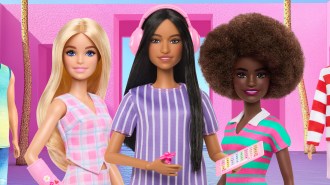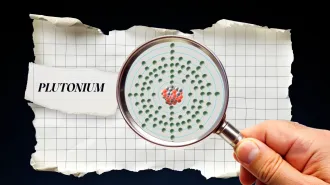Here’s looking at how the usual suspect film quotes go ahead and make your day
- More than 2 years ago
Google the phrase “I’m going to make him an offer he can’t refuse” and you’ll get more than 300,000 hits. Uttered by mob boss Vito Corleone in The Godfather, it’s the second most memorable quote in movie history, as rated by the American Film Institute. Even if you’ve never seen the movie, you’ve probably heard the phrase and perhaps even said it. Why is that? What makes some movie quotes so memorable?
Answering that question is more challenging than you might think. After all, great quotes often come from great movies. Whether it’s “I’ll get you, my pretty, and your little dog too!” or “Hello. My name is Inigo Montoya,” or “A long time ago in a galaxy far, far away,” compelling quotes are often uttered under compelling, dramatic circumstances.
But after noting that particular phrases by politicians went viral during the 2008 presidential election, a group of Cornell scientists decided to investigate what might contribute to a phrase’s catchiness. Memorability might not be all about the context, the speaker, or the sentiment of the times. Memorability might be an innate quality that’s encoded in a phrase’s linguistic DNA.
To look for clues to memorability, the researchers first had to figure out whether it was real, rather than a purely subjective evaluation by Hollywood insiders or cultural trendsetters. So for roughly a thousand movies, the team gathered each film’s “memorable quotes” from IMDb.com, the Internet Movie Database, and estimated the number of times those quotes appeared on the Web. Then the researchers put a memorable quote side-by-side with a quote from the same movie and asked people who hadn’t seen the movies which quote seemed more memorable. To control for context, each nonmemorable quote was in the same scene as the memorable quote and was said by the same character.
On average, study participants identified nine of the 12 memorable quotes (as did this writer; you can take the test here). This result suggested that the researchers were onto something. Even though there is some subjectivity, people fared far better than the 50 percent correct that would be expected by chance. Apparently there is a universality to what phrases take hold. “This was surprising,” says study coauthor Cristian Danescu-Niculescu-Mizil. “It could have been all about the context. Yet there are hints in the language that can tell you what is going to be memorable or not.”
Those hints turn out to be a specific mixture of distinctiveness and generality, the researchers will report in July in South Korea at a meeting of the Association for Computational Linguistics. (Their aptly titled paper: “You had me at hello: How phrasing affects memorability.”) Compared with common language used in news stories, memorable quotes tend to have unusual combinations of words. “How likely is it that you would see ‘Hasta la vista, baby,’ in a news story?” says Danescu-Niculescu-Mizil. But the reverse is true when it comes to syntax: The distinctive words are built on a simple scaffolding of common parts of speech. The phrases are easy to say.
There’s a second dash of generality in the memorable quote recipe: They are easily transferable to other situations. So catchy phrases typically have fewer personal pronouns. They tend to use indefinite articles, as in, “You’re gonna need a bigger boat,” not the bigger boat. And they are more likely to be in the present tense than the past, which can constrain a phrase’s relevance to a specific event.
In addition to unveiling how phrasing influences catchiness, the researchers trained a computer program to distinguish memorable phrasing from the forgettable. This automated approach could help advertisers refine their slogans or political strategists their messages. Computer-aided phrasing might even help write textbooks with content that students are more likely to remember.
The research also may explain why some quotes are consistently misremembered. “Play it again, Sam” was never said in Casablanca. James Cagney didn’t say “You dirty rat!” and Tarzan never said “Me Tarzan, you Jane.” But if you compare the misremembered quote with what was actually said, many of the incorrect quotes better follow the general rules of memorability. For example, Forrest Gump actually said “My mama always said ‘life was like a box of chocolates,’ ” but people tend to remember Mrs. Gump speaking in the present tense: “Life is like a box of chocolates.”
Danescu-Niculescu-Mizil says there isn’t a clean way to gather enough misquotes for a meaningful statistical analysis of whether we misremember quotes in a more memorable content/structure than they are actually uttered. I could attempt to do such a study. But frankly, my dear, I don’t give a damn.
SN Prime April 30, 2012 | Vol. 2, No. 17







